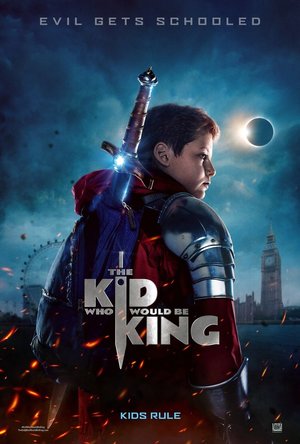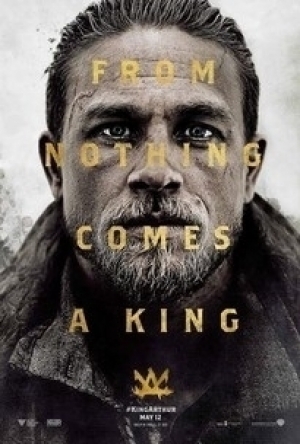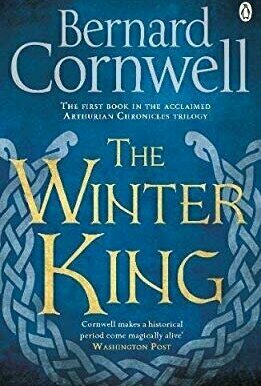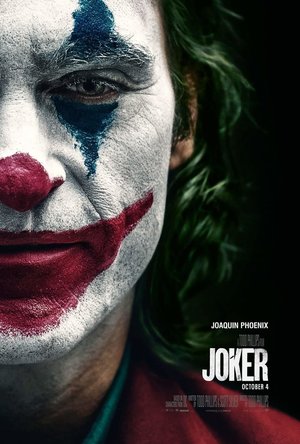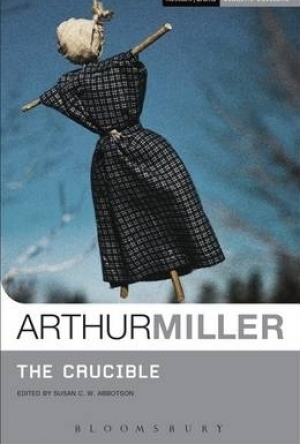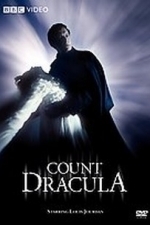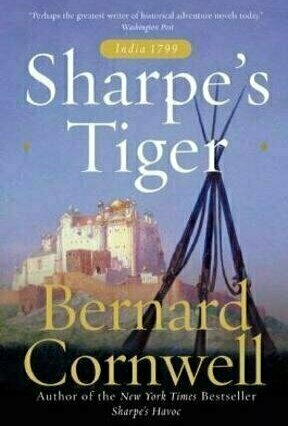Search
Search results
Kevin Phillipson (10072 KP) rated The Kid Who Would Be King (2019) in Movies
Feb 21, 2019
The young cast (1 more)
Patrick Stewart
After the awful guy Ritchie legend of King Arthur this is ten times better telling of the sword in the stone this is how should be done Joe cornish has done a good job telling a modern take on the legend of King Arthur the young cast are all brillant expect the actor playing merlin so annoying thank goodness for Patrick Stewart playing older merlin overall good movie thumbs up
Gareth von Kallenbach (980 KP) rated King Arthur: Legend Of The Sword (2017) in Movies
Jun 19, 2019
Over countless decades the legend of King Arthur has been depicted across a range of mediums. The timeless tale of love, betrayals, action, and adventure has remained a popular and enduring tale ever since it was first introduced.
Director Guy Ritchie has crafted a very different take on the tale as he even contributed to the screenplay for the film. As such “King Arthur: Legend of the Sword”, is brimming with many of his signature elements ranging from a caper story and characters who are filled with quirks and issues.
Charlie Hunnam plays Arthur who is orphaned at an early age when his family is betrayed by his Uncle Vortigern (Jude Law). Arthur is raised in a London brothel with no knowledge of his true lineage.
Arthur learns combat and life on the streets and quickly learns how to make money through various dealings, some of which are not exactly on the level. This is where Ritchie shows his trademark style as there is a caper element to the early part of the story and a scene of Arthur and his pals walking through the aftermath of an event is complete with his signature, start, stop, and rewind moments that made up his recent “Sherlock Holmes” films.
Naturally events put Arthur and Vortigern against each other when Arthur is able to pull the legendary Excalibur from a stone as part of a test imposed on all young men of a certain age.
With his true identity in place, Arthur is marked by his Uncle as he is the only threat to his power and this forces Arthur into the protection of the resistance where he must embrace his past and find his destiny.
The film does take some liberties with the Arthurian Legend and does go a bit heavy on the FX especially with the inclusion of giant creatures which made me think at times I was watching something from the “Lord of the Rings”. The film does drag in parts but does rebound with a finale that seemed very video game esque, but sets up future films well. The cast is strong and there is plenty to like about the film as long as you are willing to be patient with the pacing of the film.
http://sknr.net/2017/05/10/king-arthur-legend-sword/
Director Guy Ritchie has crafted a very different take on the tale as he even contributed to the screenplay for the film. As such “King Arthur: Legend of the Sword”, is brimming with many of his signature elements ranging from a caper story and characters who are filled with quirks and issues.
Charlie Hunnam plays Arthur who is orphaned at an early age when his family is betrayed by his Uncle Vortigern (Jude Law). Arthur is raised in a London brothel with no knowledge of his true lineage.
Arthur learns combat and life on the streets and quickly learns how to make money through various dealings, some of which are not exactly on the level. This is where Ritchie shows his trademark style as there is a caper element to the early part of the story and a scene of Arthur and his pals walking through the aftermath of an event is complete with his signature, start, stop, and rewind moments that made up his recent “Sherlock Holmes” films.
Naturally events put Arthur and Vortigern against each other when Arthur is able to pull the legendary Excalibur from a stone as part of a test imposed on all young men of a certain age.
With his true identity in place, Arthur is marked by his Uncle as he is the only threat to his power and this forces Arthur into the protection of the resistance where he must embrace his past and find his destiny.
The film does take some liberties with the Arthurian Legend and does go a bit heavy on the FX especially with the inclusion of giant creatures which made me think at times I was watching something from the “Lord of the Rings”. The film does drag in parts but does rebound with a finale that seemed very video game esque, but sets up future films well. The cast is strong and there is plenty to like about the film as long as you are willing to be patient with the pacing of the film.
http://sknr.net/2017/05/10/king-arthur-legend-sword/
Russell Evans (179 KP) rated The Winter King in Books
Feb 27, 2020
Gritty and authentic take on the Arthurian Legends (3 more)
Feels like a true historical tale
Interesting characters
Gripping first part to a trilogy worth getting into
I would definitely recommend this Novel – the first book in the Warlord Trilogy. It retells the mythical story of King Arthur but in such a gritty and credibly realistic way, that it feels like a historical epic.
This story is told from the perspective of Derfel, a young soldier and loyal follower and friend of Arthur. There are many intriguing and complex characters that are woven into the tale. The battles are quite grisly, and things can be quite brutal at times, but I guess it would have been living and fighting through the dark ages.
As a Lord of the Rings fan, this is my next favourite ‘fantasy’ trilogy. If you liked ‘The Vikings’ or ‘The Last Kingdoms’ series on TV, I would highly recommend that you give this trilogy a read.
This story is told from the perspective of Derfel, a young soldier and loyal follower and friend of Arthur. There are many intriguing and complex characters that are woven into the tale. The battles are quite grisly, and things can be quite brutal at times, but I guess it would have been living and fighting through the dark ages.
As a Lord of the Rings fan, this is my next favourite ‘fantasy’ trilogy. If you liked ‘The Vikings’ or ‘The Last Kingdoms’ series on TV, I would highly recommend that you give this trilogy a read.
JT (287 KP) rated Joker (2019) in Movies
Mar 10, 2020
This is the film of the year for me. A comic book adaptation like no other. Thought-provoking and difficult to watch it conveys more than just the transformation from abnormal loner to one of the greatest comic villains ever. Joaquin Phoenix’s performance goes some way to matching the psychotic heights of Heath Ledger’s incarnation in The Dark Knight. Ledger was posthumously awarded an Oscar for that performance and I would expect Phoenix to be front and centre when award season comes around.
Arthur Fleck is a clown for hire. Scraping to make ends meet while looking after his ailing mother (Frances Conroy) he has ambitions of making it as a stand-up comedian. Sadly his narcissistic personality and uncontrollable fits of laughter (through no fault of his own) make him a target for society. Gotham City is an unforgiving place and for Arthur, it is a constant struggle of acceptance. He’s belittled and beaten down at every turn and he’s not strong enough to fight back. The bruises on his skeletal frame are a testament to this. He’s an awkward character not least because his quiet personality simmers beneath someone ready to explode – and explode he does.
A comic book adaptation like no other it’s thought-provoking and difficult to watch
But Arthur is sick. That much is clear. Society no longer wants to help. As a result, his social worker explains that the city has cut all funding and the facility and access to his medication he relies on will stop – “All I have are negative thoughts,” he says. When the brutality takes a serious turn he unwittingly becomes a figurehead for Gotham’s society. The clown is a symbol of defiance. Fighting against the rich, of all people Thomas Wayne, who is running for Mayor. Wayne becomes wrapped up in a storyline that brings Arthur together with a familiar young face.
The strong comparisons to Taxi Driver are unavoidable, but there is a definite Scorsese feel to the film. The casting of Robert De Niro as talk show host Murray Franklin is almost a direct nod to King of Comedy in which De Niro stalks and kidnaps his idol to take the spotlight for himself. Here it’s Arthur who lovingly worships Murray. The build up to the clown prince of crime is worth the wait as the transformation builds up to a frenetic and gruesome final act.
One of the biggest takeaways from Joker is its focus on mental illness. Arthur’s battered notebook is not only a journal for his jokes but for his dark thoughts. This is a topic that will hit close to home for many people who might experience similar, with an outward animosity to society.
Arthur Fleck is a clown for hire. Scraping to make ends meet while looking after his ailing mother (Frances Conroy) he has ambitions of making it as a stand-up comedian. Sadly his narcissistic personality and uncontrollable fits of laughter (through no fault of his own) make him a target for society. Gotham City is an unforgiving place and for Arthur, it is a constant struggle of acceptance. He’s belittled and beaten down at every turn and he’s not strong enough to fight back. The bruises on his skeletal frame are a testament to this. He’s an awkward character not least because his quiet personality simmers beneath someone ready to explode – and explode he does.
A comic book adaptation like no other it’s thought-provoking and difficult to watch
But Arthur is sick. That much is clear. Society no longer wants to help. As a result, his social worker explains that the city has cut all funding and the facility and access to his medication he relies on will stop – “All I have are negative thoughts,” he says. When the brutality takes a serious turn he unwittingly becomes a figurehead for Gotham’s society. The clown is a symbol of defiance. Fighting against the rich, of all people Thomas Wayne, who is running for Mayor. Wayne becomes wrapped up in a storyline that brings Arthur together with a familiar young face.
The strong comparisons to Taxi Driver are unavoidable, but there is a definite Scorsese feel to the film. The casting of Robert De Niro as talk show host Murray Franklin is almost a direct nod to King of Comedy in which De Niro stalks and kidnaps his idol to take the spotlight for himself. Here it’s Arthur who lovingly worships Murray. The build up to the clown prince of crime is worth the wait as the transformation builds up to a frenetic and gruesome final act.
One of the biggest takeaways from Joker is its focus on mental illness. Arthur’s battered notebook is not only a journal for his jokes but for his dark thoughts. This is a topic that will hit close to home for many people who might experience similar, with an outward animosity to society.
Ross (3284 KP) rated The Kid Who Would Be King (2019) in Movies
Feb 19, 2019
Great fun British film
This film seems pretty timely - the backdrop of the country being split and in turmoil with everyone miserable and/or arguing perfectly nails pre-Brexit Britain, without actually naming the cause of the upset. Seeing kids sensing their parents' and teachers' stress levels and looking to help really nails home how much we are all struggling with the current climate and need to think about the impact that has on our homelives.
The plot is fairly standard Arthurian legend - boy pulls sword from stone and seeks to unite his enemies behind him in battling against forces of evil. The film does this with full knowledge and gentle telling of the actual legend, and doesn't look to be a re-telling, rather a modern day "second coming of Arthur".
There are plenty of laughs throughout the film, with a typical British flavour.
There is also action aplenty with some really powerful battle scenes and excellent SFX.
Director Joe Cornish (of Adam & Joe fame - there is also a nice cameo from Adam Buxton in the film) does a fantastic job of telling the story through the eyes of a child but without it being patronising or twee.
The cast are superb, with the young Merlin really being a star (and creepily like a young Joe Cornish). While I enjoyed Patrick Stewart's role as Merlin, I felt it added less gravitas than I think was intended and wasn't really necessary, the young incarnation perfectly playing the role himself.
A great, fun and thrilling adventure.
The plot is fairly standard Arthurian legend - boy pulls sword from stone and seeks to unite his enemies behind him in battling against forces of evil. The film does this with full knowledge and gentle telling of the actual legend, and doesn't look to be a re-telling, rather a modern day "second coming of Arthur".
There are plenty of laughs throughout the film, with a typical British flavour.
There is also action aplenty with some really powerful battle scenes and excellent SFX.
Director Joe Cornish (of Adam & Joe fame - there is also a nice cameo from Adam Buxton in the film) does a fantastic job of telling the story through the eyes of a child but without it being patronising or twee.
The cast are superb, with the young Merlin really being a star (and creepily like a young Joe Cornish). While I enjoyed Patrick Stewart's role as Merlin, I felt it added less gravitas than I think was intended and wasn't really necessary, the young incarnation perfectly playing the role himself.
A great, fun and thrilling adventure.
Becs (244 KP) rated The Crucible in Books
Oct 2, 2019
I absolutely love Arthur Miller and anything regarding witches/ the Salem Trials. So, the crucible for me is a five-star novel. Can we just take a moment to admire the writers of the 50’s and older as they don’t seem to be getting much hype lately? Like, literary classics are deemed school reads and not your typical everyday read. THIS NEEDS TO CHANGE.
Reading these in school and then giving them a reread five years after graduating, has shown a new light onto these novels. And has made me appreciate them more as a whole compared to when I read them in high school. If you haven’t read many literary classics, I recommend starting with something by Arthur Miller or George Orwell. Yes, they may be a bit hard to get into at first, but give it time. That’s the key when reading any book!
The Crucible by Arthur Miller
Genre: Literary Classic, Historical Fiction, Plays, Drama
Synopsis: “I believe that the reader will discover here the essential nature of one of the strangest and most awful chapters in human history,” Arthur Miller wrote of his classic play about the witch-hunts and trials in seventeenth-century Salem, Massachusetts. Based on historical people and real events, Miller’s drama is a searing portrait of a community engulfed by hysteria. In the rigid theocracy of Salem, rumors that women are practicing witchcraft galvanize the town’s most basic fears and suspicions; and when a young girl accuses Elizabeth Proctor of being a witch, self-righteous church leaders and townspeople insist that Elizabeth be brought to trial. The ruthlessness of the prosecutors and the eagerness of neighbor to testify against neighbor brilliantly illuminate the destructive power of socially sanctioned violence.
Written in 1953, The Crucible is a mirror Miller uses to reflect the anti-communist hysteria inspired by Senator Joseph McCarthy’s “witch-hunts” in the United States. Within the text itself, Miller contemplates the parallels, writing, “Political opposition… is given an inhumane overlay, which then justifies the abrogation of all normally applied customs of civilized behavior. A political policy is equated with moral right, and opposition to it with diabolical malevolence.”
WIth an introduction by Christopher Bigsby.
Audience/ Reading Level: High School +
Interests: Plays, Drama, Witches, the Salem Trials, Arthur Miller, Literary Classics.
Point of View: Third Person Omniscient
Difficulty Reading: With every literary classic, you run into the problem of the first 30% of the novel being a bore or hard to get into. The Crucible was only a bore in parts but taking the novel as a whole, it was a pretty easy read.
Promise: “I believe that the reader will discover here the essential nature of one of the strangest and most awful chapters in human history.”
Insights: The Crucible is based on true events and Arthur Miller has a way of explaining everything that was wrong with the way people lived. I.E. Woman did not have rights until the early 1920’s. This didn’t stop some countries/states to still not allow the woman to have rights. But taking The Crucible into perspective, the women that were charged with witchcraft were unable to explain themselves to the men. The men believed the accusers either because they were sleeping with them or because they were their family. Luckily, nowadays we don’t have this extreme of situations but it still does exist. The Crucible teaches all of its readers, young or old, many valuable lessons that are sometimes hard to witness. Plus, Miller correlates the events in the Crucible to the anti-communist McCarthyism of the 1950s.
Favorite Quotes: “I speak my own sins; I cannot judge another. I have no tongue for it.”
“Because it is my name! Because I cannot have another in my life! Because I lie and sign myself to lies! Because I am not worth the dust on the feet of them that hang! How may I live without my name? I have given you my soul; leave me my name!”
“You are pulling down heaven and raising up a whore”
What will you gain: A love for another literary classic and a love for Arthur Miller if you do not already love his writing. Plus, a great historical read.
Aesthetics: The witches, the trials, the way people take sides, I mean I can’t say much more without giving spoilers away. We wouldn’t want that, now would we?
“It is rare for people to be asked the question which puts them squarely in front of themselves”
Reading these in school and then giving them a reread five years after graduating, has shown a new light onto these novels. And has made me appreciate them more as a whole compared to when I read them in high school. If you haven’t read many literary classics, I recommend starting with something by Arthur Miller or George Orwell. Yes, they may be a bit hard to get into at first, but give it time. That’s the key when reading any book!
The Crucible by Arthur Miller
Genre: Literary Classic, Historical Fiction, Plays, Drama
Synopsis: “I believe that the reader will discover here the essential nature of one of the strangest and most awful chapters in human history,” Arthur Miller wrote of his classic play about the witch-hunts and trials in seventeenth-century Salem, Massachusetts. Based on historical people and real events, Miller’s drama is a searing portrait of a community engulfed by hysteria. In the rigid theocracy of Salem, rumors that women are practicing witchcraft galvanize the town’s most basic fears and suspicions; and when a young girl accuses Elizabeth Proctor of being a witch, self-righteous church leaders and townspeople insist that Elizabeth be brought to trial. The ruthlessness of the prosecutors and the eagerness of neighbor to testify against neighbor brilliantly illuminate the destructive power of socially sanctioned violence.
Written in 1953, The Crucible is a mirror Miller uses to reflect the anti-communist hysteria inspired by Senator Joseph McCarthy’s “witch-hunts” in the United States. Within the text itself, Miller contemplates the parallels, writing, “Political opposition… is given an inhumane overlay, which then justifies the abrogation of all normally applied customs of civilized behavior. A political policy is equated with moral right, and opposition to it with diabolical malevolence.”
WIth an introduction by Christopher Bigsby.
Audience/ Reading Level: High School +
Interests: Plays, Drama, Witches, the Salem Trials, Arthur Miller, Literary Classics.
Point of View: Third Person Omniscient
Difficulty Reading: With every literary classic, you run into the problem of the first 30% of the novel being a bore or hard to get into. The Crucible was only a bore in parts but taking the novel as a whole, it was a pretty easy read.
Promise: “I believe that the reader will discover here the essential nature of one of the strangest and most awful chapters in human history.”
Insights: The Crucible is based on true events and Arthur Miller has a way of explaining everything that was wrong with the way people lived. I.E. Woman did not have rights until the early 1920’s. This didn’t stop some countries/states to still not allow the woman to have rights. But taking The Crucible into perspective, the women that were charged with witchcraft were unable to explain themselves to the men. The men believed the accusers either because they were sleeping with them or because they were their family. Luckily, nowadays we don’t have this extreme of situations but it still does exist. The Crucible teaches all of its readers, young or old, many valuable lessons that are sometimes hard to witness. Plus, Miller correlates the events in the Crucible to the anti-communist McCarthyism of the 1950s.
Favorite Quotes: “I speak my own sins; I cannot judge another. I have no tongue for it.”
“Because it is my name! Because I cannot have another in my life! Because I lie and sign myself to lies! Because I am not worth the dust on the feet of them that hang! How may I live without my name? I have given you my soul; leave me my name!”
“You are pulling down heaven and raising up a whore”
What will you gain: A love for another literary classic and a love for Arthur Miller if you do not already love his writing. Plus, a great historical read.
Aesthetics: The witches, the trials, the way people take sides, I mean I can’t say much more without giving spoilers away. We wouldn’t want that, now would we?
“It is rare for people to be asked the question which puts them squarely in front of themselves”
Erika (17789 KP) rated The Kid Who Would Be King (2019) in Movies
Jan 26, 2019
If this film had been around when I was a kid, I probably would have watched it at least once a week. The film reinvigorates the story of Arthur, and does it far more service than that travesty that was released a few years ago.
I'm not a big kid movie watcher, and admittedly, I stood outside of the theater so I didn't have to watch the kid previews attached to it.
The main character, Alex, is a likeable, relatable, realistic kid that just wants to do the right thing. His best friend, Bedders, was my favorite kid out of the core 4, and had some of the best quips.
But, the best character was the whack-a-doo Young Merlin, that portrayal is the Merlin I've always wanted.
The film did drag a little in the middle, but it was overall entertaining, kid-friendly flick.
I'm not a big kid movie watcher, and admittedly, I stood outside of the theater so I didn't have to watch the kid previews attached to it.
The main character, Alex, is a likeable, relatable, realistic kid that just wants to do the right thing. His best friend, Bedders, was my favorite kid out of the core 4, and had some of the best quips.
But, the best character was the whack-a-doo Young Merlin, that portrayal is the Merlin I've always wanted.
The film did drag a little in the middle, but it was overall entertaining, kid-friendly flick.
Adam Green recommended track This Springtime by Turner Cody in 60 Seasons by Turner Cody in Music (curated)
Awix (3310 KP) rated Count Dracula (1977) in Movies
Nov 15, 2020
Surprisingly faithful BBC adaptation of the famous story has definite merits, but also perhaps shows why most people don't stick so close to the text. Young solicitor Harker goes off to Transylvania to close a deal with the engimatic Count Dracula; you can probably guess the rest.
Scores very highly for its acting - Frank Finlay is a charismatic Van Helsing and Louis Jourdan a playfully evil Dracula - and also for its atmosphere, even with BBC TV production restraints (videotaped interiors, some rather weird special effects). For an adaptation to stick quite so close to the book is very nearly exceptional, too - Savory makes Lucy and Mina sisters, combines Arthur and Quincey into one character, and cuts down the final act, but that's about it. The drawback to this, of course, is that after the first act Dracula gets relatively little screen-time and even less dialogue, and it does drag on just a tiny bit. Nevertheless, its fidelity and seriousness mean that this is certainly among the top echelon of Draculas in any medium.
Scores very highly for its acting - Frank Finlay is a charismatic Van Helsing and Louis Jourdan a playfully evil Dracula - and also for its atmosphere, even with BBC TV production restraints (videotaped interiors, some rather weird special effects). For an adaptation to stick quite so close to the book is very nearly exceptional, too - Savory makes Lucy and Mina sisters, combines Arthur and Quincey into one character, and cuts down the final act, but that's about it. The drawback to this, of course, is that after the first act Dracula gets relatively little screen-time and even less dialogue, and it does drag on just a tiny bit. Nevertheless, its fidelity and seriousness mean that this is certainly among the top echelon of Draculas in any medium.
David McK (3702 KP) rated Sharpe's Tiger (Sharpe, #1) in Books
Aug 27, 2021
Chronologically the first Sharpe book (or, at least, it is at the moment!), this was publishes as the 16th novel in the series, after the success of the 1990 Sean Bean starring TV series, which followed the original, Napoleonic-set, stories.
As such, this is actually set prior to the Napoleonic Wars, with Sharpe - as the novel starts - a young private in the regiments of Arthur Wellesley's battalion of the 33rd regiment of foot, who are on campaign in India against the Tippoo Sultan of Mysore.
For plot reasons, Sharpe - in the company of William Lawford (who was a character mentioned in the 'original series' as having taught Sharpe how to read, thus making the jump to Sergeant easier) - have to go undercover in Seringapatam, just as that city is about to be besieged by the Allied forces.
It helps that, by doing so - or so Sharpe thinks - he'll be able to escape from the tyrannical Sergeant Obadiah Hakeswill: one of those creations that you just love to hate!
As such, this is actually set prior to the Napoleonic Wars, with Sharpe - as the novel starts - a young private in the regiments of Arthur Wellesley's battalion of the 33rd regiment of foot, who are on campaign in India against the Tippoo Sultan of Mysore.
For plot reasons, Sharpe - in the company of William Lawford (who was a character mentioned in the 'original series' as having taught Sharpe how to read, thus making the jump to Sergeant easier) - have to go undercover in Seringapatam, just as that city is about to be besieged by the Allied forces.
It helps that, by doing so - or so Sharpe thinks - he'll be able to escape from the tyrannical Sergeant Obadiah Hakeswill: one of those creations that you just love to hate!
